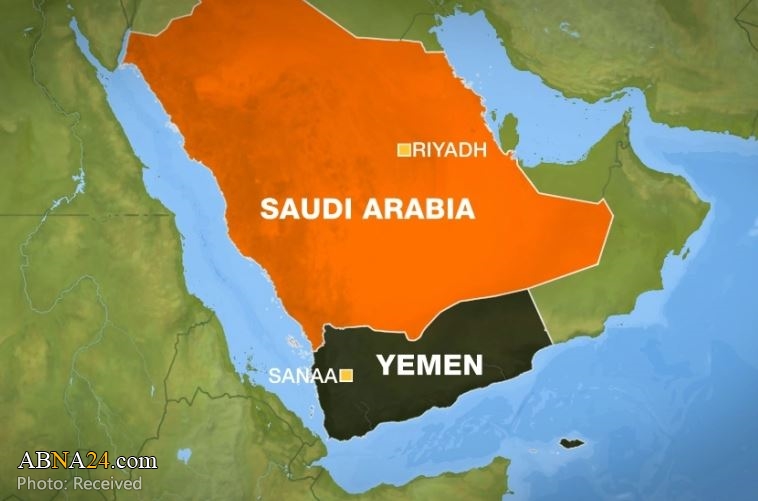AhlulBayt News Agency (ABNA): The situation in southern Yemen has for a long time been under the influence of the deep gaps in the Aden front and the Saudi push to end the differences in the government of the resigned President Abdrabbuh Mansour has so far gone nowhere. Saudi Arabia, which its effort to implement Riyadh power-sharing agreement between Hadi and the separatist Southern Transitional Council (STC) with the aim of uniting Aden ranks against Sana’a have failed, in recent days announced retreat of STC forces from Aden and also Abyan province, signaling that Riyadh is ramping up its mediation efforts again.
On Saturday, a member of committee supervising implementation of Riyadh agreement told Anadolu news agency that the separatist forces have withdrawn from Aden and moved to Dhale frontlines. The source told the news agency that Hadi-aligned forces and the STC forces began exit from battlefronts in Abyan. The UAE-backed STC has confirmed the retreat to Lahaj province.
Despite this new accord, a hope for end of Aden differences remain largely unrealistic. On the one hand, the past experience of repeated collapse of Riyadh agreement despite the southerners’ agreement to accept the ceasefire dashes hope for the fresh deal's success especially that the southerners are seriously concerned and pessimistic about the Saudi plans to increase presence in the region and traditionally deem the coalition with the northern forces like Islah Party and forces close to Hadi as an obstacle ahead of their pro-independence ambitions.
On the other hand, even in case of maintaining this deal, chasms among the Hadi forces will be inevitable since equal sharing of the ministerial government posts with the southern separatists in line with Riyadh accord causes severe concerns and discontentment of Islah Party.
Yemen’s Al-Khabar outlet, citing informed sources, said that the Muslim Brotherhood-affiliated Islah, which is the strongest political party within Hadi government, plans creation of “opposition council” along with the Hadi-dismissed figures and those close to Qatar-Turkey alliance in the region.
After formation, the council will fill the Hadi government place in areas controlled by Islah forces and stand in the face of the UAE-aligned STC demands. Former Deputy Prime Minister Abdulaziz Jabari, former Interior Minister Ahmed al-Maysari, former Transportation Minister Saleh al-Jabwani, Shabwa Governor Mohammed Saleh bin Adio, and Socotra Governor Ramzi Mahrous are members of this council, reports added.
Regardless of veracity of the news, what looks definite is the surge in the differences between Saudi Arabia and the Yemeni Muslim Brotherhood affiliates which means that the end of the expedient alliance between Riyadh and Islah Party is close. This gives the party the shivers especially that the fall of Ma’rib, the traditional seat of Islah’s social and political influence, to Ansarullah and army forces is imminent.
Islah Party and shift from Saudis to Turkey
It appears that the Riyadh distancing from Islah Party is related to the heightened differences between Saudi Arabia and the Muslim Brotherhood camp led by Qatar and Turkey in the regional developments. Although in November, Saudi Arabia at the G20 summit played interested in de-escalation of tensions with Qatar and Turkey by announcing readiness to solve the Persian Gulf crisis, its stances completely conflict with its concrete actions.
Following boycott of the Turkish products and imposing a ban on the Saudi citizens’ travel as tourists to Turkey, in another offensive anti-Turkish move, a top Saudi court cleric recently issued a fatwa calling the Muslim Brotherhood a “terrorist, deviant, and non-Muslim” group, an attack certainly conducted with the Saudi government’s green light.
Although the measure was aimed at pressuring Qatar and Turkey, the Saudis ignored the fact that Muslim Brotherhood of Yemen could not remain indifferent to it, especially that under Riyadh agreement Islah Party saw its share from Aden cabinet posts cut. In recent months, many prominent leaders of the Yemeni Brotherhood have moved to Turkey from Saudi Arabia, including the party leader Muhammad al-Yadumi and Yemen’s most prominent Muslim Brotherhood cleric Sheikh Abdul Majeed al-Zindani.
This marks a new stage in the Saudi-Islah relations, pushing the two to enmity from alliance in Yemen developments. Experience demonstrates that Turkey seriously backs any Muslin Brotherhood factions anywhere if they can help press ahead with Ankara's geopolitical plans in the region. Ankara-Riyadh competition can enable Turkey to use Muslim Brotherhood potentials to enter Yemen case both to pursue its neo-Ottoman ambitions and to devise pressure tools for use against Saudi Arabia.
The Turks know it well that Saudi Arabia feels vulnerable in Yemen more than any other place it considers as its strategic depth. Meanwhile, the outcome of the Islah Party’s closeness to Turkey and Qatar is rekindled disputes at the southern frontiers and pressure buildup on Hadi government.
/129
source : Al Waght News
Wednesday
16 December 2020
6:36:28 AM
1096239

On Saturday, a member of committee supervising implementation of Riyadh agreement told Anadolu news agency that the separatist forces have withdrawn from Aden and moved to Dhale frontlines. The source told the news agency that Hadi-aligned forces and the STC forces began exit from battlefronts in Abyan. The UAE-backed STC has confirmed the retreat to Lahaj province.
